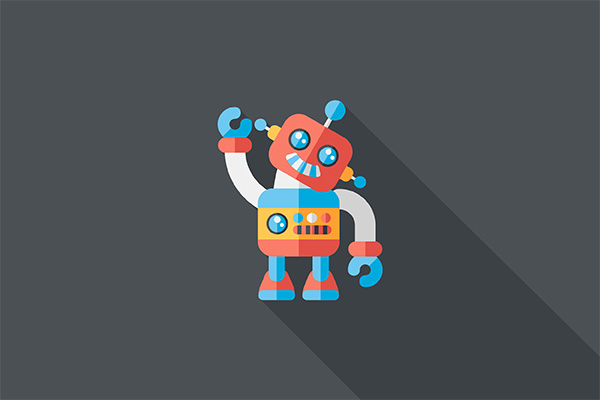The rise of the robot
Saya had been teaching for seven years. Her impressive but short CV included stints in a few rural areas, overseas and as a substitute teacher. Not bad for someone only seven years into the role.
The difference is Saya is a remote controlled robot who taught her first class of 10-year olds in 2009.
While we’ve all heard and read the stories of manual or labour-type jobs easily replaced by robots, increasingly the jobs we previously thought safe are no longer — teachers, bankers, data analysts and the like are all at risk.
But what do we really have to fear? Is it the threat to our job, or is it the constant need to change and transform ourselves and our skills?
History offers the benefit of hindsight and while many people lost their jobs during the industrial revolution, many more were created. Again, followed the advent of electricity, people lost their jobs but it spawned new sectors and related industries and more jobs. More recently we’ve experienced massive shifts in the workplace thanks to computers. Did people lose their jobs? Absolutely — but again think of the industries and jobs the computers and information technology created.
For centuries we have been unbelievably adaptable no matter the changes to our workplace. But is it different this time?
It’s different this time
When conservative companies like the Bank of America estimates that 90% of the following jobs could be replaced by robots or some form of artificial intelligence, maybe it is time to start worrying: sports umpires, tour guides, paralegals, bakers, butchers, retail sales, tax collectors, insurance sales people, pharmacy technicians, telemarketers, check-out cashiers, secretaries, receptionists, accountants, clerks and the list goes on.
When people like Stephen Hawking and Elon Musk worry that Artificial Intelligence (AI) could spin out of control, maybe this time is different.
When Fortune magazine reports US corporations slashing more than two million jobs a year and we see figures estimating there are over 800 million people unemployed globally, maybe it’s a sure sign that this time it really is different.
When Nobel Laureate economist Wasilly Leontief worries that the role of humans is going the way of the horse when tractors were introduced into agricultural production maybe it’s an ominous warning.
But hold on a minute — doesn’t all this talk mirror that over two centuries ago when our society was first mechanised? Darn right it does.
Whether Hawking, Musk, Leontief or countless other doomsday sayers are right, time, once again will be the judge. One thing is for sure, robots are and will continue to take our jobs.
After all who of us can assemble and cook 360 burgers an hour? Don’t bother applying by the way — the job is already taken by a robot built by Momentum Machines and it doesn’t need lunch breaks nor comfort breaks and it can work all night without falling asleep and still be fresh the next morning.
The question, much like the disruption of yesteryear, is how many new jobs, industries and sectors will be created by the current change? After all it wasn’t long ago that none of the following companies existed — Amazon, Google, Twitter, FaceBook, Uber, AirBnB and Canva to mention a few.
Disruption brings with it big opportunities
Technology is changing our world. Of that there is no doubt, but like we’ve done in the past we will adjust to our new environment; we will acquire new skills and many of us have already switched our thinking to not having one career but rather a constantly changing career supported by life-long learning and reinvention. Today more than ever the old adage of adapt or die is never more important.
The good news is with change there is always upside. It is during times of change that humans are their most creative, their most innovative. People will adapt, but it is governments and policy makers who need to be careful. They will need to be on their toes for no sector will be immune to the dramatic shifts we are experiencing. In turn they had better be sure that policy, legislation and regulation adapts quickly enough to support and empower the change and those impacted by it.
As always there will be winner and loser nations. Watch out those nations slow to adjust for the economic, social and political backlash could be intense. The scenarios are endless but ponder just one — the potential impact of driverless trucks and cars and the necessary changes in legislation to manage this. The impact of first mover nations in this regard will be massive. Notwithstanding the hundreds of lives saved and countless injuries prevented, the subsequent effect on costs, insurance, traffic flow, petrol consumption and the like would be immense.
In his book Digital vs Human, Richard Watson maintains that crucial to the introduction of driverless cars will be “the level of trust between people and machines.” He goes on to add: “No doubt many people will lose their jobs. That includes cabbies, truck drivers and even much maligned parking wardens.” This trust to which Watson refers will be critical not only to driverless cars.
But hey why worry about your job. Instead when you settle into your airplane seat on your next business trip, you may want to start worrying about a comment from a senior Boeing executive in Watson’s book who said: “A pilotless airliner is going to come. It’s just a question of when.”
As a techno-optimist I say bring it on.
This post was originally published on the Firebrand Ideas Ignition Blog.
Latest.

Juniors & Leaders: How To Fail In The Workplace The Right Way
Leadership, Thought Leadership, Job Seeker

The Right To Disconnect From Work—A Blessing Or Curse?
Thought Leadership

4 Important Steps To Review And Improve Your ERG
Diversity, Equity and Inclusion



